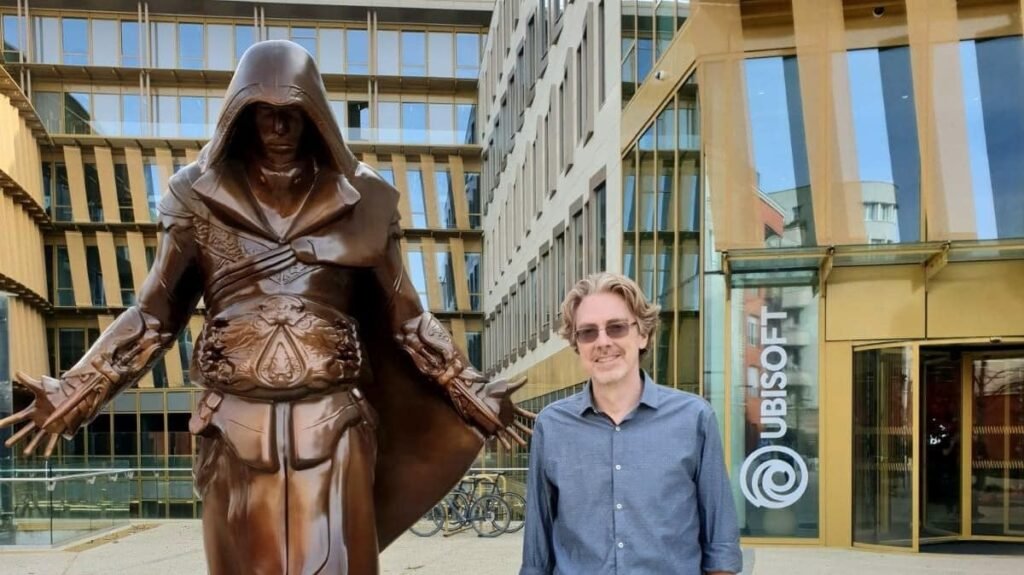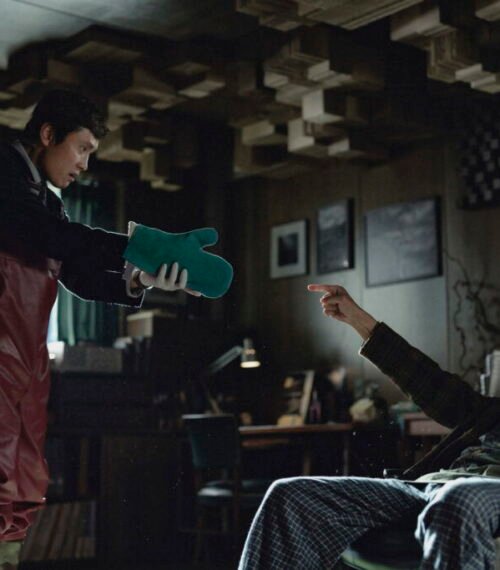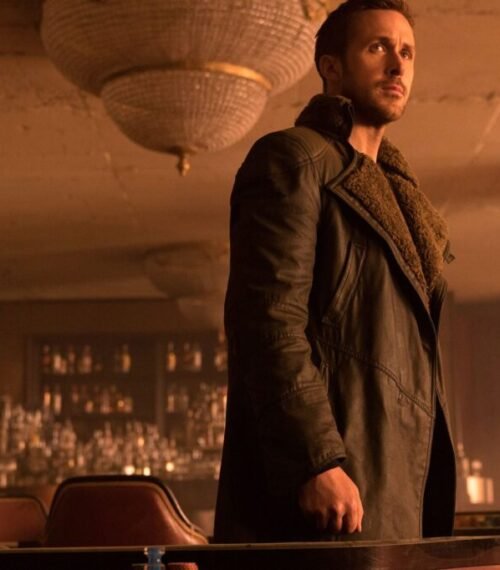From IO Interactive’s Hitman series to composing the iconic Ezio’s Family theme for Assassin’s Creed II, Jesper Kyd has had a long and successful career working in the gaming industry. The Danish-born, BAFTA-winning artist has been making music for nearly four decades. And his versatility continues to shine, most recently in his work on Warhammer 40,000: Darktide, whose soundtrack has now surpassed 50 million streams on Spotify.
With the release of Darktide Volume 4 this past August (via Fatshark Games and Laced Records), Kyd expanded the grimdark universe with a mix of heavy synths, gothic choirs, and vintage analog sounds. In addition to Darktide, Kyd has scored State of Decay 3, Borderlands, and we have even heard his work on the big screen with the acclaimed horror film Tumbbad.
In an exclusive interview with FandomWire, Jesper Kyd opened up about his work on Darktide, his history with Assassin’s Creed, and his unique musical philosophy that blends emotion, atmosphere, and gameplay rhythm into one unforgettable experience.
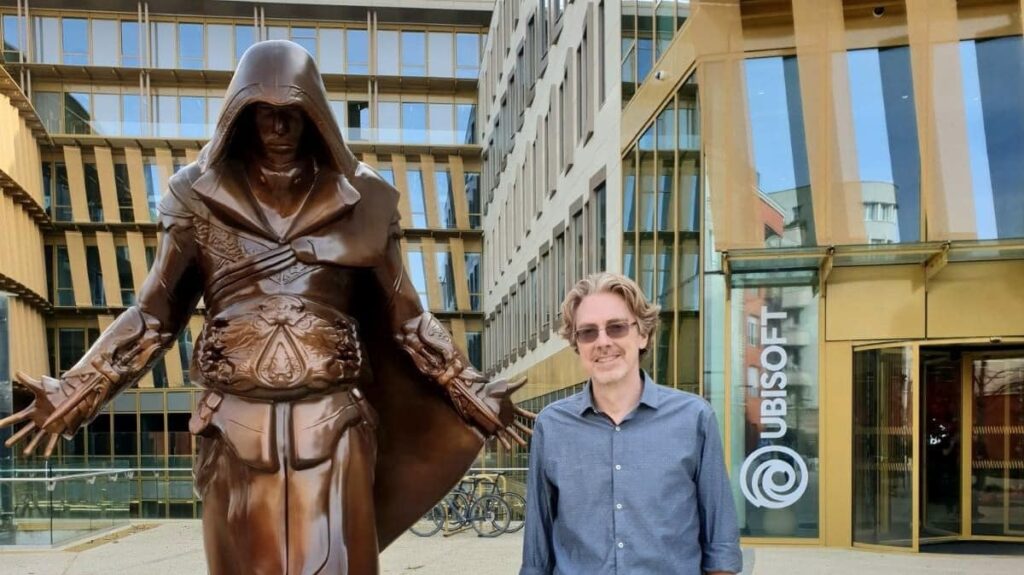
FandomWire: You composed the Darktide soundtrack, which features a dark, operatic, and synth-heavy style. What attracted you to this sound world, and how did the collaboration with Fatshark help shape it?
Jesper Kyd: I’ve always been fascinated with electronic music and melody. And when the rave scene happened in the ‘90s, that became another obsession. Then Hitman happened, and I became very interested in symphonic and choral music. I like combining these influences together, and for Darktide, I was able to get all my favorite interests shaped into one score. That was one of the attractions, and the other was working with Fatshark again, whom I had worked with on Vermintide 1 and 2, and really enjoyed the experience.
As far as the collaboration, Fatshark wanted something new that didn’t sound like the typical big orchestra sound usually identified with Warhammer.
Fatshark was looking for a sound that had a feel of “living machines,” and I used 1970s analog synths to capture this feeling. To represent the Imperium, we chose the choir and church organ. Obviously, it’s an action score, and the industrial nature of the Warhammer 40,000 world pushed the score and atmosphere into something hard-hitting and intense. You play a “reject” from society, and so the idea of “found sound” instruments also made an impact on the music style.
FandomWire: The original Darktide soundtrack has now surpassed 50 million streams on Spotify. What does that level of audience engagement mean to you?
Jesper Kyd: That’s very cool to see. I guess it means people are listening repeatedly to the score, which means a lot to me. It’s one thing to write a score that fits; it’s a different thing to write something that can live outside the game, and I do work hard to get a lot of detail and surprising melodic writing into my music. I’m inspired by music that has that thing, that piece of craftsmanship that allows it to be listened to over and over. That is essentially what good game music needs to do: to be able to be heard many times while still calling you back for another listen. A “side effect” of this is that the music can also be listened to outside the game. I think the best scores for film and games are like artist albums, and that’s also something I’m drawn to. When you successfully world-build with original music, the score should be able to completely transport you into another world. That is the strength of soundtrack music, as we don’t rely on lyrics to tell the story. And so instrumental music can really set your mind free in a creative way. When listening, you make up your own story regarding what is happening in the music, without everything centered around song lyrics that clearly remind you what the music is about.
FandomWire: With Volume 4 recently released, how does it expand or evolve from your previous volumes? Any surprising sonic directions fans should expect?
Jesper Kyd: One surprise is Track 2, which is called The Ritual. This track goes in a more symphonic direction, mixed with synths and choirs. The first track on this album is written for a train mission, and so it digs into the feel of riding an out-of-control train.
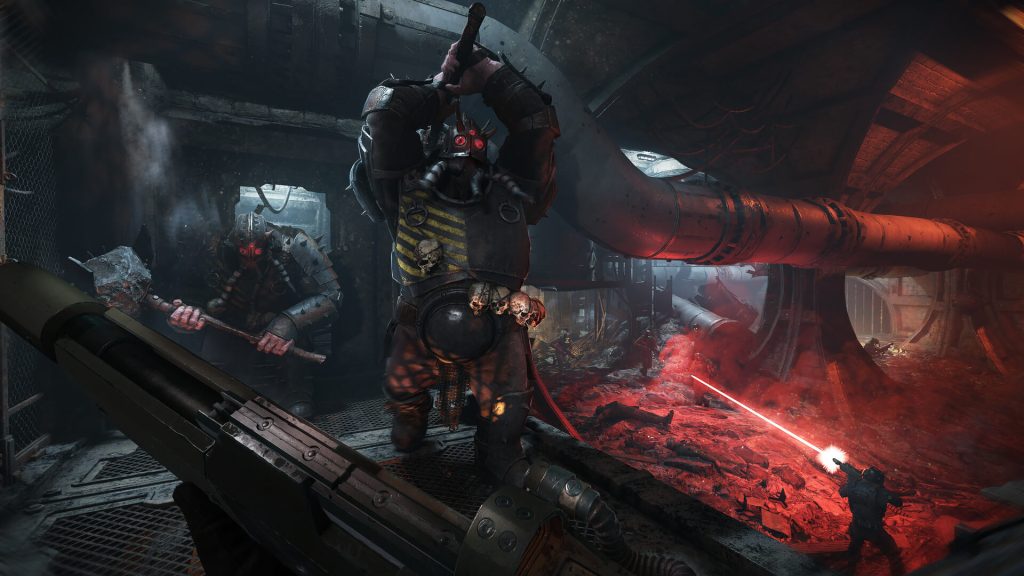
FandomWire: Previous Warhammer scores leaned more towards orchestral or industrial, but Darktide uses analog synths, Eurorack, and gothic choirs. What was your creative philosophy behind this?
Jesper Kyd: This was very much something that Fatshark and I shared a vision on. They wanted something new, and so I started experimenting. The Main Theme is one of the first things I wrote and really embodies all the ideas for the score….from the sound of the “reject” to rising in stature throughout the Imperium. And all mixed with electronics, synths, drum machines, live recorded choir, “found sound” instruments, and so on.
FandomWire: How did you craft the choral and chant-driven elements in the Darktide score? Were they rooted in Warhammer lore, or were they developed independently?
Jesper Kyd: They were developed independently in order not to be tied to one event only. But they are very much inspired by the world of Warhammer 40,000. The choir also adds an element of Imperium propaganda to the world-building, which Warhammer 40,000 is full of.
FandomWire: Darktide is primarily a multiplayer experience. Did that change how you approached composition compared to narrative-driven games like Assassin’s Creed?
Jesper Kyd: The music is created to help build the atmosphere of Warhammer 40,000, and that focus is mainly on helping to introduce specific areas, fights, bosses, and events happening within the world of Darktide. There are also specific cues that play if you lose most of your team or have to work together to solve a specific event or take out a difficult boss, etc. So some of these tracks wouldn’t exist in a game like Assassin’s Creed. Assassin’s Creed can have long moments without any combat, so I tend to write a lot of exploration music when working on Assassin’s Creed.
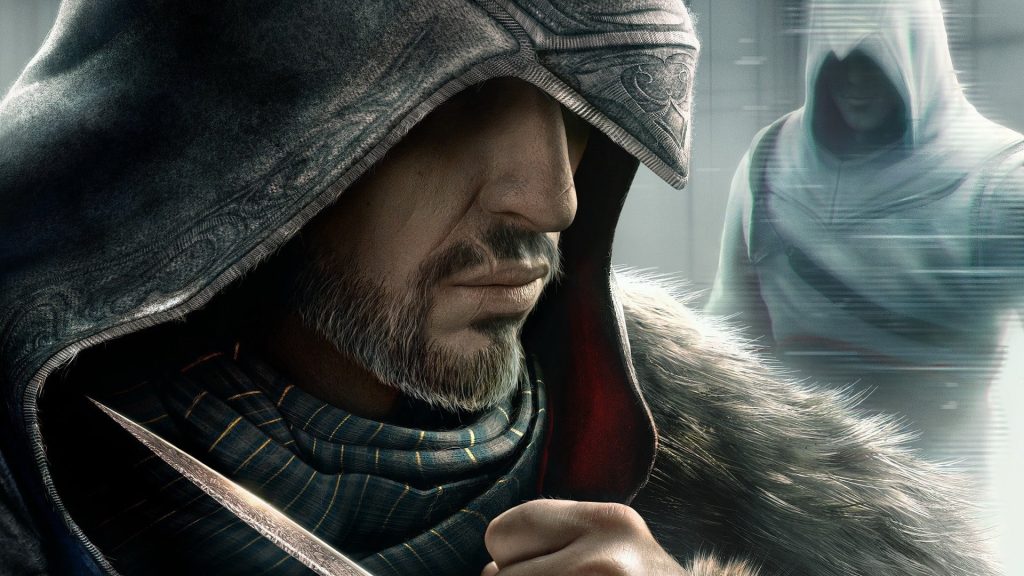
FandomWire: You’ve previously mentioned that games have sometimes been adjusted to fit the timing or mood of your music. Can you share a specific instance where this happened?
Jesper Kyd: For the opening of Assassin’s Creed 2, I suggested we extend the game’s logo to let the music play out longer, and that ended up being implemented. The original Hitman games and Freedom Fighters are also full of moments where the music and game work hand in hand, since I helped design the music system closely with IO Interactive.
FandomWire: Do you think about gameplay rhythm and structure when composing, or is your focus primarily on emotional and atmospheric tone?
Jesper Kyd: Yes, it’s important to know how the game feels to play. Darktide is a lightning-fast experience, and I designed the music to match that intensity. Assassin’s Creed Valhalla is more about setting the mood across a vast outdoor environment that you explore and live in for many hours.
FandomWire: You co-founded the Danish studio Zyrinx early in your career. With Danish studios like Raw Power Games gaining attention today, have you considered forming another studio or mentoring local talent?
Jesper Kyd: It’s great to see Raw Power Games receiving well-earned attention. These days, living here in Los Angeles, my focus is tuned more towards music writing, supporting game events, concerts, and releasing more of my soundtracks. I’ve been around game development since my teenage years, and while I have a pretty good understanding of what makes a great game, I’ve always been on the side of creating atmosphere and mood with music.
FandomWire: Many of your former Zyrinx colleagues moved to IO Interactive, with whom you’ve collaborated multiple times. How has that long-standing creative relationship shaped your approach?
Jesper Kyd: The 4 Hitman games and Freedom Fighters really helped shape my interest in symphonic music and also music implementation, how the music influences the experience. For the Sega Genesis games I worked on early in my career, the music pretty much looped with new music for every level and so on. For Hitman, I really worked with IO on creating a music score that allowed you to play the same level for hours without the music becoming repetitive. It’s also when I started crafting a lot of detail hidden in my music, so when listening again and again, you can still discover new things.
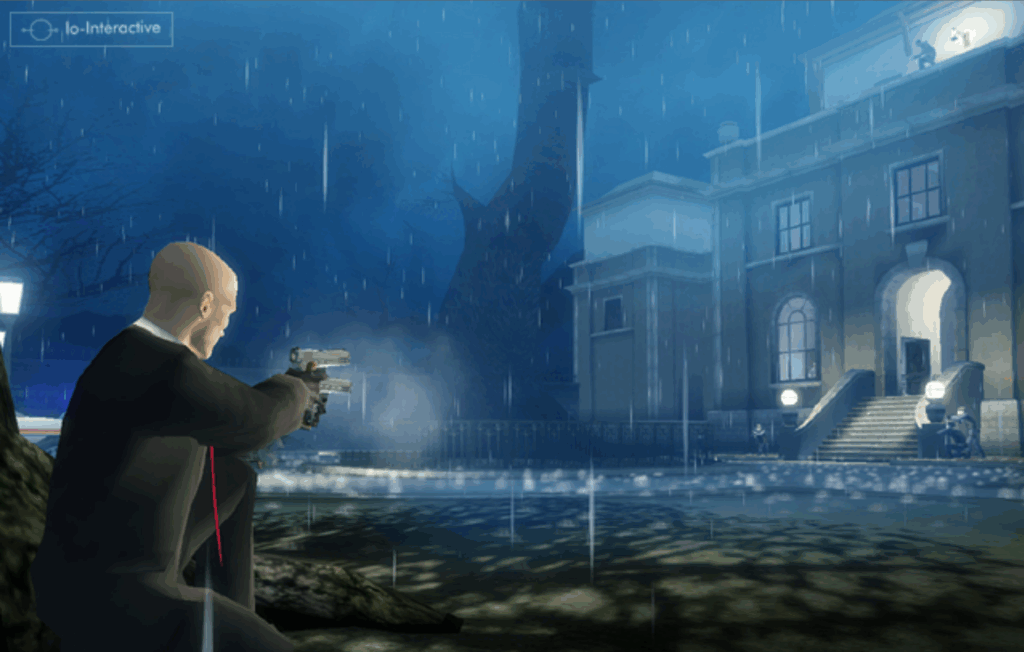
FandomWire: You won a BAFTA for Hitman: Contracts. Looking back, how did that recognition impact your path as a composer?
Jesper Kyd: It was unusual to win for an electronic score back then, so that was really surprising. At the time, the Hitman Contracts score was a new direction for a game score, and so it felt great to be recognized for that.
FandomWire: You’ve worked on superhero content before with The Adventures of Batman & Robin. With the Wonder Woman game reportedly canceled, would you be interested in tackling another superhero franchise?
Jesper Kyd: I would. With Wonder Woman, we were going in an unusual direction for a superhero score, and I feel there’s so much there yet to be discovered. I was drawing on my experience working with electronic music and mixing it with live choir and orchestra.
FandomWire: You came up through the Amiga demoscene and were part of The Silents. Do those early experiences still influence how you build rhythms and textures today?
Jesper Kyd: On the Amiga, I learned to go really deep with sampling, and to this day, I work a lot with my own samples. It’s part of creating a unique sound when world-building and a really important element in my music-making.
FandomWire: What inspires you outside of music creation? Are you still an active gamer? What are some recent favorites?
Jesper Kyd: Yes, I’m still a gamer. One of my favorite games is Subnautica and Below Zero. Those games have everything I look for in a good game. I’m mostly a PC gamer these days, and open-world games with a great narrative are my favorite type of games.
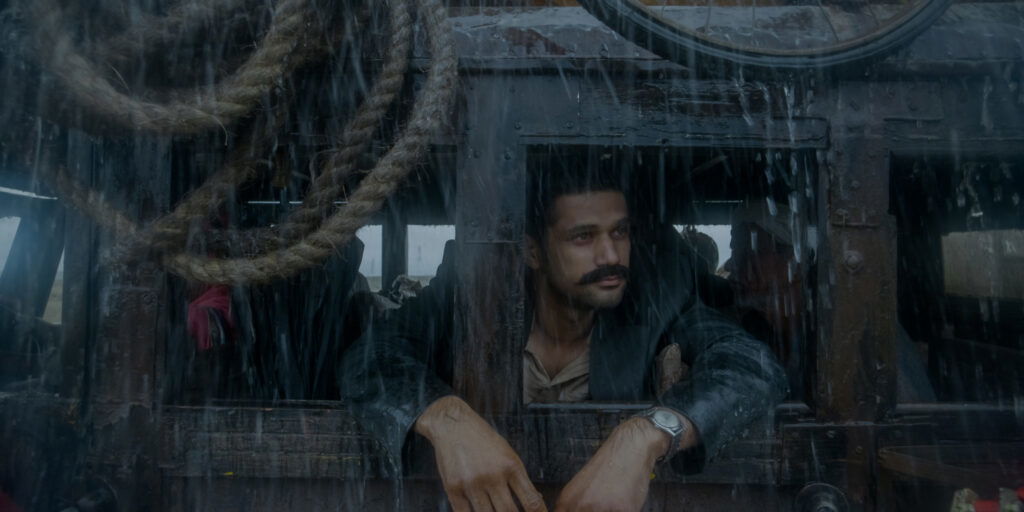
FandomWire: With Tumbbad and Darktide rooted in horror, do you see yourself branching into lighter genres, or is dark, atmospheric music your true home?
Jesper Kyd: I have done much lighter genres lately, such as the animated series Raid Shadow Legends – Call of the Arbiter. I like working on projects that require a strong mood or a score that makes an impact. That’s what I enjoy working on. I realized my music style lends itself best to projects where the music can be a character of the film or game. This kind of music style can be any genre; there’s not a set music style I find myself wanting to only work on.
FandomWire: With video game adaptations gaining popularity, would you be interested in working on a video adaptation of any of the video games you’ve worked on? If yes, do you think you would have more creative freedom working on a film compared to a video game?
Jesper Kyd: It would be fun to work on an adaptation, though it depends on the director and producers. For Tumbbad, I was encouraged to write a very colorful score, which is also what I thought worked best for the film. Some projects can be difficult for a variety of different reasons, for example, tight timelines or challenging communication. It’s a collaborative effort writing a film score since you have to enhance the film while also writing in certain expected music styles and so on. My process is to experiment and then define and hone in on the final sound. This can be difficult in film if there are a lot of different opinions and expectations. So for me, it’s about working with great collaborators who want to go down the path of pushing things into unique directions.
FandomWire: Were there particular instruments, sound textures, or compositional techniques you used to evoke the sense of dread and greed that defines the film?
Jesper Kyd: The dread was enhanced by the “found sound” technique used in the first 1/3 of the film. Found instruments that sounded primitive and home-made connected to the era of 1918, living in rural areas with the challenges of nature and the constant rain. Later in the film, as we jump forward to the 1930s, the music becomes more modern and more symphonic, better suited to city living in modern society.
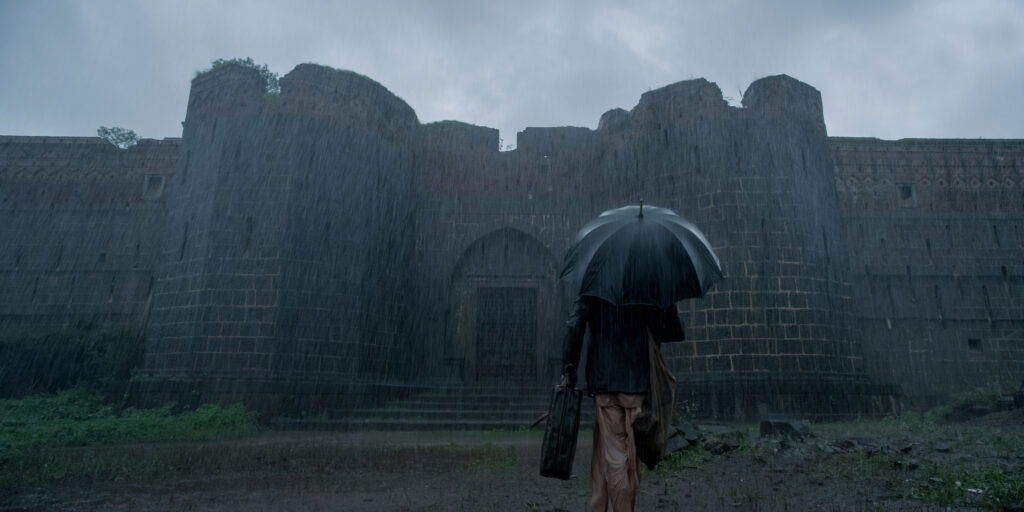
FandomWire: What are your top five horror franchises you’d love to compose for, and what draws you to each of them?
Jesper Kyd:
FandomWire: Considering your Danish background, how did you adapt to the rich Indian mythology to create the haunting soundtrack that resonates with the themes?
Jesper Kyd: I am used to going into projects that require a music style I don’t necessarily have any prior experience with musically. Of course, this only works if you have the support of the team. With Tumbbad, the co-director Adesh Prassad was very supportive, and when things were pushed into crazy places, he was always very enthusiastic. And in this way, we both learned from even the craziest experiments that perhaps deliberately went too far. Those types of music sessions can be really useful, and lots can be learned and found along the way, even if it ends up needing adjusting. Adesh is someone who really appreciates my creative process, so it’s a great partnership.
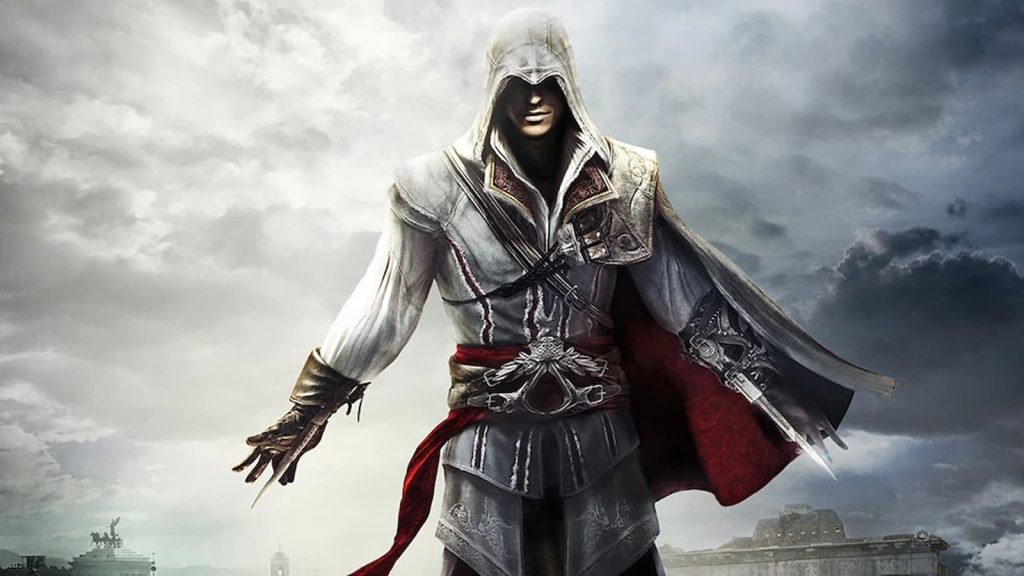
FandomWire: As a self-taught composer, which musicians or composers have most inspired your work, and did any influence iconic pieces like “Ezio’s Family”?
Jesper Kyd: Growing up, I was into Jean Michel Jarre, Vangelis, Mike Oldfield, Depeche Mode, etc. I love instrumental music and especially like artists that are heavy into mood setting and atmosphere. These days, I like almost all kinds of music genres from hip hop to classical.
FandomWire: Ubisoft values historical accuracy in Assassin’s Creed. How much did that shape your music, and how much creative freedom did you have? As a follow-up, do you feel you have more creative freedom working on a film than on a video game?
Jesper Kyd: I worked on the first 4 Assassin’s Creed games, and we were exploring and establishing the sound of Assassin’s Creed. For those games, there was a lot of creative freedom. Ubisoft trusted and hired me to find the sound of their new franchise. Later, when I returned to Valhalla, I worked on creating an outdoor sounding score with a connection to the Nordic gods, and so for this game, I went into Viking territory to create a very realistic fusion of the Assassin’s Creed sound.
FandomWire: Your music in the Ezio Trilogy still resonates with fans. With Assassin’s Creed Shadows hinting at callbacks to Ezio’s Family theme, are you involved in any way, or would you return for a future AC project?
Jesper Kyd: I love working with Ubisoft on Assassin’s Creed, so if they came to me and I felt I had something new to contribute, yes, I would work on another Assassin’s Creed.
Jesper Kyd’s work shows just how vital music is to world-building in cinema, TV, and video games. Over the span of his career, he has consistently paved new ways in whatever industry he worked in. And even today, his work on Darktide proves that even decades into his career, he’s still innovating, still experimenting, and still creating music that becomes a part of the experience.
How did you discover Jesper Kyd’s work, and what would you like him to work on next? Let us know in the comments!

